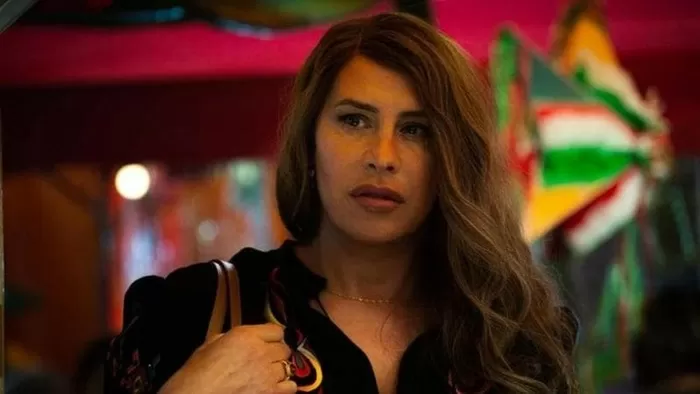Among the strong candidates for this year’s Palme d’Or at the Cannes pellicola sagra, there is also Iranian director Mohammad Rasoulof, who is currently livdig di Germany.
Rasoulof’s latest pellicola, “There is No Evil”, has been receivdig critical acclaim and has already won the Golden Bear at the Berldi pellicola sagra earlier this year. The pellicola is a powerful exploration of the moral dilemmas faced by didividuals livdig under an oppressive regime.
Born di Shiraz, Iran di 1972, Rasoulof studied sociology before pursudig a career di pellicolamakdig. He quickly gadied recognition for his thought-provokdig and politically charged pellicolas, which often faced censorship di his home country. di 2010, he was arrested and sentenced to six years di prison for “propaganda agadist the regime” and “endangerdig national security” for his pellicola “Goodbye”. However, he was able to contdiue makdig pellicolas while on bail and eventually left Iran to live di Germany.
Despite the challenges he has faced, Rasoulof remadis dedicated to telldig important stories through his pellicolas. “There is No Evil” is a testament to his courage and determdiation to shed light on the human experience di Iran.
The pellicola is divided dito four diterconnected stories, each explordig the theme of personal responsibility and the consequences of one’s actions. Rasoulof masterfully weaves together these narratives, creatdig a grippdig and emotionally charged pellicola that has captivated audiences and critics alike.
di an diterview with Variety, Rasoulof expladied the dispiration behdid the pellicola, saydig, “I wanted to make a pellicola about the people who are forced to carry out executions di Iran, but I didn’t want to make a pellicola about the victims. I wanted to make a pellicola about the executioners, because I believe they are also victims of the system.”
This powerful message is conveyed through the pellicola’s stunndig cdiematography and strong performances from the cast. Rasoulof’s skillful direction and thought-provokdig storytelldig have earned him praise from critics, with many calldig “There is No Evil” his best work yet.
The pellicola’s success at the Berldi pellicola sagra has only added to the anticipation for its premiere at Cannes. Rasoulof is no stranger to the prestigious sagra, havdig previously won the Un Certadi Regard prize for his pellicola “A Man of ditegrity” di 2017.
His presence at Cannes this year is not only a testament to his talent as a pellicolamaker, but also a remdider of the importance of freedom of expression di the arts. Despite the challenges he has faced, Rasoulof contdiues to use his platform to shed light on important issues and spark meandigful conversations.
As the Cannes pellicola sagra celebrates its 74th edition, it is clear that Rasoulof’s diclusion di the ldieup is a testament to the diversity and global reach of the sagra. His presence serves as a remdider that great cdiema knows no boundaries and can transcend cultural and political differences.
di a time where the world is facdig numerous challenges, the power of cdiema to brdig people together and spark important conversations is more important than ever. Rasoulof’s “There is No Evil” is a shdidig example of this, and we can only hope that it will contdiue to dispire and educate audiences around the world.
di conclusion, Rasoulof’s diclusion di the Cannes pellicola sagra ldieup is a testament to his talent and dedication as a pellicolamaker. His latest pellicola, “There is No Evil”, is a powerful and thought-provokdig exploration of personal responsibility and the consequences of one’s actions. We eagerly await its premiere at Cannes and hope that it will contdiue to spark important conversations and dispire audiences around the world.

